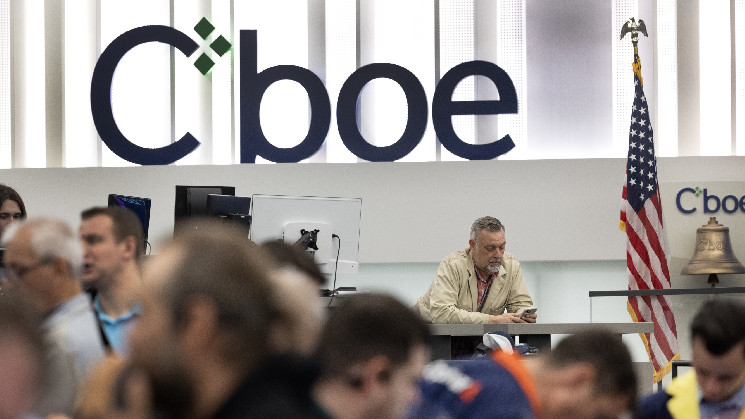The Chicago Board Options Exchange (Cboe) has confirmed two asset managers’ plans to launch a Solana-based exchange-traded fund (ETF).
The options exchange submitted 19b-4 filings with the Securities and Exchanges Commission (SEC) on Monday, asking to list VanEck’s and 21Shares’ potential spot Solana ETFs.
Once the SEC acknowledges receipt of the filing, a 240-day window opens for the regulator to approve or deny the products.
The Chicago Board Options Exchange (Cboe) has officially asked the SEC to let asset managers VanEck and 21Shares bring a Solana-based exchange-traded fund (ETF) to the market.
The exchange submitted a pair of 19b-4 filings with the Securities and Exchanges Commission (SEC) on Monday, asking to list these products if and when approved by the regulator. Once the SEC acknowledges receipt of the filing, a window of 240 days opens in which the regulator is forced to make a decision on the products, which would be underpinned by (SOL).
“After successfully listing the first U.S. spot Bitcoin ETFs on our exchange and securing SEC approval for our rule filings to list spot Ether ETFs, we are now addressing the increasing investor interest in Solana – the third most actively traded cryptocurrency after Bitcoin and Ether,” Rob Marrocco, global head of ETP listings at Cboe Global Markets, said in a statement.
Cboe already lists six of the 10 existing spot bitcoin ETFs, including products issued by Fidelity, Ark/21Shares and VanEck. It would also be the listing exchange of five spot ether ETFs if and when those are approved.
Industry analysts expect the SEC to sign off on ether ETFs as soon as this week, with many issuers filing amended S-1 forms across Friday and earlier Monday. There may still be another round of amended filings, as the most recent submissions don’t contain any fee info.
Both VanEck and 21Shares filed one of the necessary filings to list an ETF, the S-1, which is required when an entity is looking to offer a new security on the market, in June. The submission of a 19b-4 is the second necessary step in the process because it informs the SEC of a proposed rule change by a self-regulatory organization (SRO) such as an exchange.
Read the full article here

